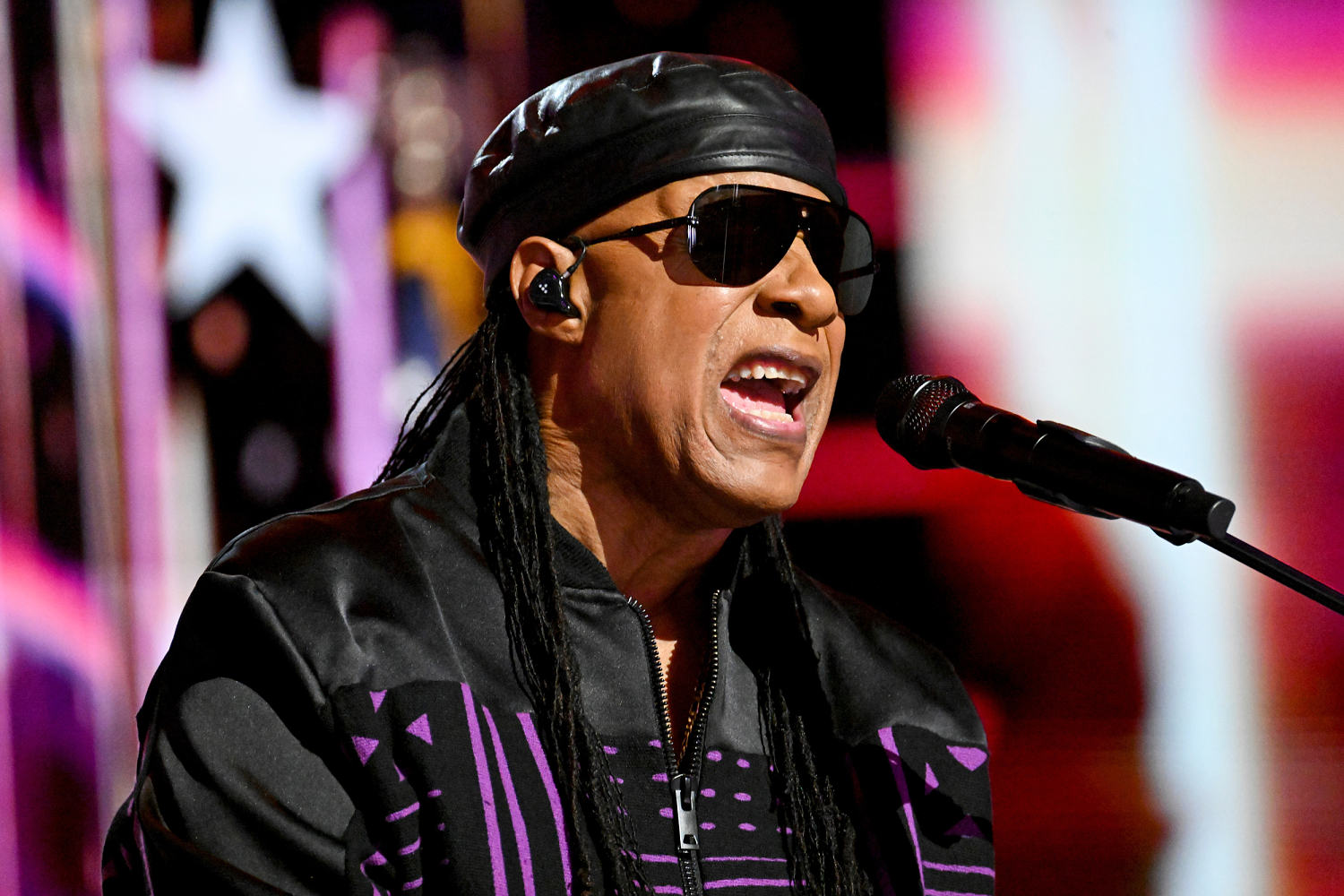WASHINGTON — Kamala Harris is endorsing trillions of dollars in new tax revenues to fund her new policy plans, and her campaign is attacking Donald Trump for failing to outline how he’d pay for the multitrillion-dollar agenda he’s campaigning on.
Harris campaign spokesperson James Singer labeled Trump’s agenda “an inflation and deficit bomb” in a statement to NBC News, sparking a Trump campaign response blaming her for a “Biden-Harris inflation tax.”
Follow live election coverage here
According to nonpartisan estimates, Harris is proposing to spend about $2 trillion and raise $5 trillion in tax revenues over a decade. Trump is calling for about $5 trillion in tax breaks and spending while raising less than $3 trillion in revenue through tariffs.
“Hands down, VP Harris is being much more fiscally disciplined than President Trump,” said Mark Zandi, chief economist at Moody’s Analytics.
“It’s a clear signal that whatever the policies, they plan to be fiscally disciplined,” he said. “And that is a bit of a flip. Historically, being fiscally disciplined and focused on budget deficits has been a Republican rally cry.”
A Harris campaign spokesperson said she supports the $5 trillion in new tax revenues in the White House budget released in March, including a corporate tax rate hike from 21% to 28%, ending the Trump tax cuts for upper earners next year and an array of taxes on wealthier Americans.
Harris’ plans aimed at lowering housing, child care and prescription drug prices would cost about $1.7 trillion, according to the Committee for a Responsible Federal Budget, a research group that calls for cutting red ink.
Zandi agreed with that estimate, saying the new Harris plans would total $1.5 trillion to a high end of $2 trillion, before the offsets.
“So at the very least, she should have about $3 trillion in deficit reduction over the 10-year budget horizon,” he said. “I can’t recall a deficit reduction package that comes even close to that.”
Harris is seeking to flip the script on fiscal responsibility and build a permission structure for Trump-skeptical moderate Republicans and center-right voters to support her candidacy, particularly in key swing states where they could be decisive. She has disavowed some left-wing proposals she endorsed in 2019 as a presidential candidate, such as Medicare for All and a Green New Deal.
Marc Goldwein, senior policy director at the Committee for a Responsible Federal Budget, cautioned that the Harris campaign hasn’t earmarked all the $3 trillion for deficit reduction.
“They’ve also pointed to that they’re going to have plans on child care, long term care, paid leave,” he said.
And, he noted, extending Trump’s tax cuts for lower earners in 2025 would also impact her revenue-raisers.
“We just haven’t seen the full plan yet," he said.
Trump claims 'tremendous growth' would pay for his expensive polices
Meanwhile, Trump and his campaign have called for extending his 2017 tax cuts, as well as eliminating payroll taxes on Social Security, nixing taxes on tips and boosting the child tax credit to $5,000.
Taken together, his plans would cost about $5 trillion, Zandi said.
Asked Friday how he would pay for his plans, Trump told reporters in Las Vegas, “Growth. We’re going to have tremendous growth. We’re going to have tremendous growth.”
Goldwein said that’s not a serious proposition.
“Tremendous growth sounds like a great idea! I don’t know why we didn’t do that in all the previous administrations,” he said. “But no, you’re not going to grow your way out of this.”
Trump’s one big proposal to raise revenue for the government is through new taxes on imported goods — a 10% worldwide tariff and 60% tariff on Chinese imports. Zandi projected that it would bring in as much as $2.5 trillion in revenue. The Tax Policy Center estimated that Trump’s tariffs would raise $2.8 trillion in revenue, slashing U.S. imports by 15%.
Goldwein added that Trump’s tariffs and mass deportation policies could shrink growth, even as some of his proposed tax breaks are good for economic growth.
“So as a starting point, if you look at his whole agenda, the direction isn’t even clear. It could be pro-growth or anti-growth,” he said. “But the magnitude is definitely not going to be such that it’s so pro-growth that it covers trillions of trillions and trillions of dollars of additional borrowing.”
Whoever wins the election, Congress is headed for a major tax debate next year, with much of the 2017 Trump tax cuts set to expire at the end of 2025. It's unclear which parts will be extended.
Harris campaign calls Trump plans 'an inflation and deficit bomb'
Singer predicted that higher deficits under Trump's plans would ultimately be covered by ordinary Americans.
“Donald Trump won’t pay for his agenda, but the middle class will: with higher costs, cuts to Social Security and Medicare, and less economic opportunity,” Singer said in an email. By contrast, he said, Harris “will make billionaires and big corporations pay their fair share while she builds up the middle class.”
In response, Trump campaign spokesperson Karoline Leavitt accused the Biden-Harris administration of engaging in “reckless spending” and saying, “America faces an inflationary spending problem, not a revenue problem.” She indicated that Trump would seek to boost U.S. oil production and exports, even as they’ve reached all-time highs under the Biden administration.
“President Trump will cut wasteful government spending and make America a net-exporter of energy again ... to help balance our nation’s budget and pay off our mounting debts,” Leavitt said.
Trump has also mused about cutting taxes further on individuals and businesses next year, which would raise his red-ink estimates.
Zandi said that the Trump 2017 tax cut “did lift growth in terms of corporate investments,” but it “didn’t come close to paying for itself” — and that extending them would add more red ink.
“There’s no way he’s going to get that kind of growth,” he said. “The deficit-financed tax cuts just don’t pay for themselves.”
.png)
 3 weeks ago
25
3 weeks ago
25






























 Bengali (BD) ·
Bengali (BD) ·  English (US) ·
English (US) ·